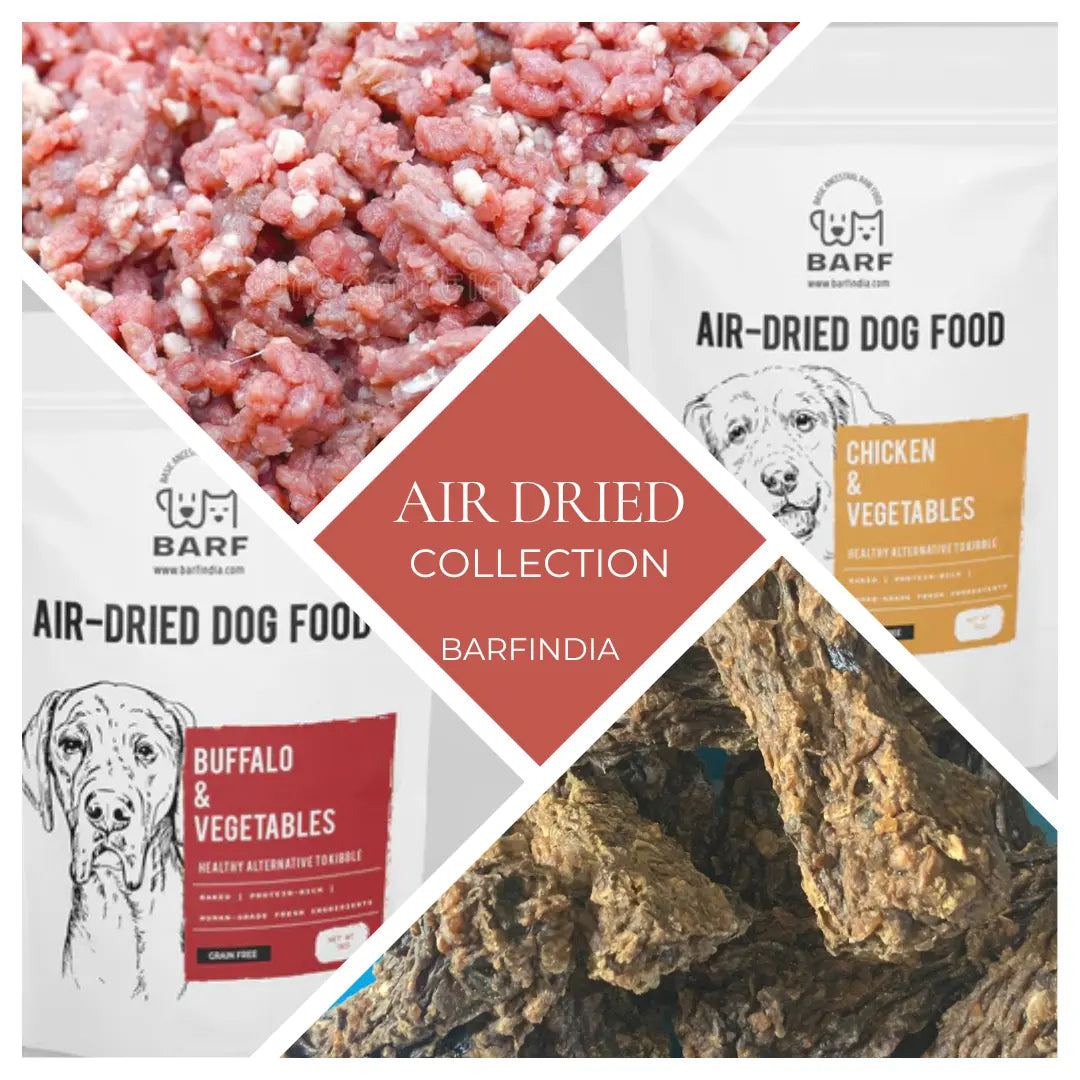
Heart Issues with your pets? Important signs to watch out for.
B.A.R.F. India AdministratorPrevent heart issues in your dog
Heart issues in dogs?”, you ask surprised. Yes, while it’s not as common as the coronary disease is among human beings, dogs have been known to suffer from heart conditions that affect their lifestyle and can have a severe effect on their health.
What we’re going to talk about today is congestive heart failure, which, to explain it, means the weakening of the heart muscle. This issue is primarily seen in aging dogs, but with a little care and preparation, you can keep your dog’s heart working in top condition for a long time. And that means you get to enjoy your dog’s companionship for many long years.
Remember though, before you make any major or sudden changes to your dog’s diet or lifestyle, you must always consult your vet and confirm that it’s safe.
Here are 8 tips that can help prevent or slow down the possibility of heart issues or disease in your furry friend:
1. Feed A Healthy Diet
The biggest enemy of a healthy heart is obesity. To prevent that, make sure that you are feeding your dog a healthy diet. Not only is this beneficial for your dog’s skin, coat, joints, and overall organ function, nutrition is also critical for maintaining a healthy weight. Search the market for balanced, high-quality food and reduce the number of treats. No, don’t let those puppy eyes fool you. A healthy dog is a happy dog. Talk to your dog’s vet to make a healthy diet plan for your dog if he’s already overweight or if he’s finding it tough to shed those extra kilos.
2. Exercise. Exercise. Exercise.
You must be weighing your pet every time you take him to the doctor, but even if he’s the right weight, it does not indicate that he’s in the best shape. For your furry friend to be healthy, you need to get him moving. Include a lot of physical activity such as walking, running, hiking, swimming, and other fun activities to keep his heart pumping well. If your dog is primarily sedentary do consult your vet before commencing strenuous activities.
3. Visit your vet regularly
We all visit the vet for our dog’s annual vaccination, but as our dog ages, we need to visit more frequently. Schedule at least two visits a year, or once every 3-4 months. Our dogs age much faster than us – consider 4-8 years for every 1 of ours. And you need to take your senior pooch more often to the vet to catch any potential health issues in time.
4. Dental care is important
Don’t skip on dental checkups. Bad oral hygiene can show up as early as 4 ye4ars of age or later in life, but it has been known to have a strong correlation to heart disease. The tartar, plaque, and any residual infection in your dog’s mouth can enter the bloodstream and cause congestive heart failure. Maintain a regular dental care routine at home (can connect to the previous article) and visit your vet if you notice any issues like sore gums, bad breath, bleeding or excessive drooling.
5. Prevent heartworm disease
Mosquitoes don’t target just humans but can feast on your dog too. And in the process, they can transmit the dangerous heartworm disease. If infected, your dog can suffer from inflammation of the blood vessels, restricted blood flow, pulmonary embolism, and even heart failure. Dogs that have been successfully treated can still be left with permanent heart damage which can impact their quality of life. Don’t let this worry you too much. You can easily prevent heartworm transmission with a simple pill or topical product once a month. Always ask your vet before administering any medicine.
6. Be familiar with your dog’s breed
Some dogs are more prone to heart disease than others. If your furry friend is a spaniel or a boxer, you should keep an eye out for any change in behaviour. Keep yourself informed what to watch out for in your pup so you can be better prepared to recognize the symptoms.
7. The signs of heart disease
Most often heart issues in dogs is acquired rather than being a genetic predisposition. Like any other age-related disease, it is a result of normal wear and tear, injury or illness. Watch out for these symptoms and consult your vet in case of any concerns.
- Shortness of breath
- Fatigue
- Rapid weight loss
- Cough that worsens at night
- Dry cough after exercise
- Fainting spells
- Pale gums
- Swollen abdomen (pot belly)
While you cannot always entirely prevent diseases in your pet, the bottom line is to be watchful and be prepared. A little care and watchfulness can go a long way in catching heart disease early on and making sure your furry friend gets the best life possible.



